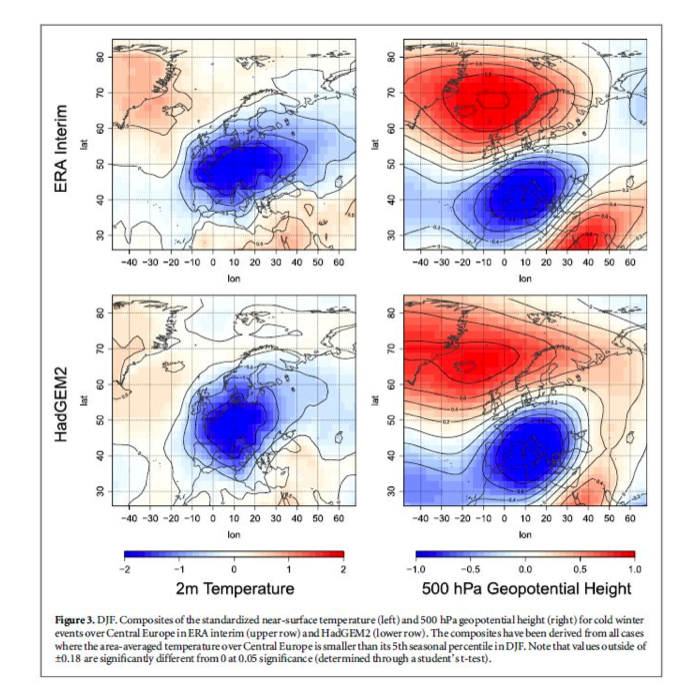Overarching Theme: Simulate
Are models able to reliably simulate extremes and their changes, and how can this be evaluated and improved?
There is a lack of understanding in the types of events that current models can provide credible and robust simulations for, and in the identification of key processes for climate models to capture in order to produce credible simulations of weather and climate extreme events and thus improve prediction of those events. Furthermore, the ability of models to simulate particularly small-scale extremes depends on resolution and sometimes requires downscaling.
This theme addresses these issues through various approaches, including evaluation of extremes at the level of storylines or processes, developing strategies to compare and evaluate events that require high resolution (such as tropical cyclones) and producing long-control simulations to characterize the variability in both circulation states and extremes. Where models do simulate the fundamental underlying processes that produce extremes, dynamically-based scaling approaches need to be developed in order to better link processes at model scales with local scales. We recommend that high frequency data are pre-processed in order to easily extract information relevant to extremes, so that they are more readily-accessible to the wider user community. Intra-seasonal-to-seasonal prediction and near-term prediction of the probability of extreme events at impact relevant space/time scales will play increasingly important roles for climate service. (See implementation plan).

(source: Krueger et al. 2015)
Related Workshops
- Advancing our understanding and modeling of climate extremes by combining physical insights with statistical methodology (M-CLIX) (5-7 October 2015, Oslo, Norway): was an excellent opportunity to discuss the following issues that need to be addressed for evaluating and improving the simulation of changes in extremes. This is important because climate model evaluation stops short of extremes generally, except for very simple diagnostics. The workshop brought together dynamicists/severe weather specialists with statisticians and people analysing models so that best practice can be developed for model evaluation, possibly to be published as a white or review paper based on CMIP5 data analysis. We will aim to find funding for a follow-up workshop in 2017 to document progress. We aim to illustrate model evaluation focusing on extremes with key examples.
- Session on Advanced methods for evaluating weather and climate extremes in climate model simulations (co-conveners: Jana Sillmann, Philippe Naveau and Erich Fischer) at the 13th International Meeting on Statistical Climatology (13IMSC), June 6-10 2016 in Canmore, Alberta.

